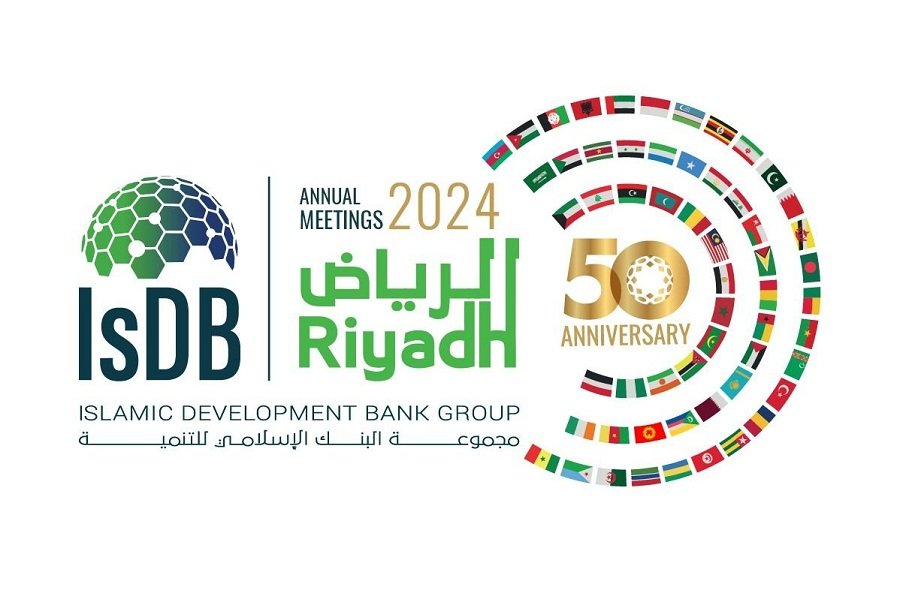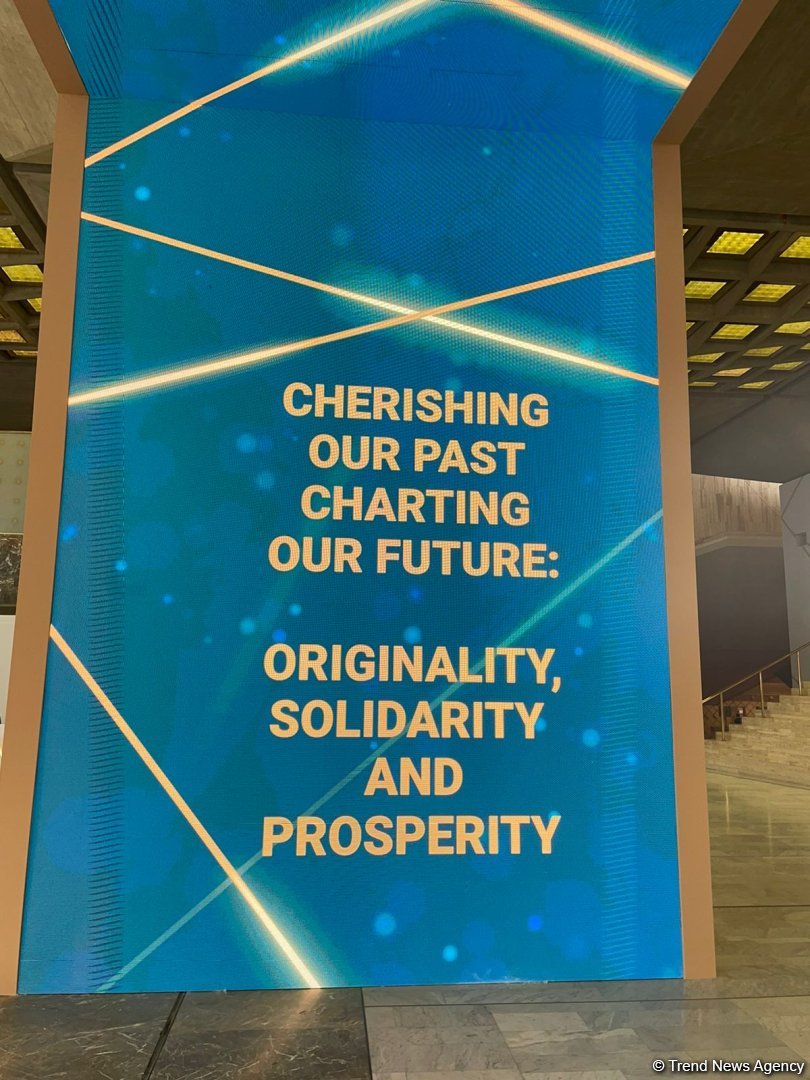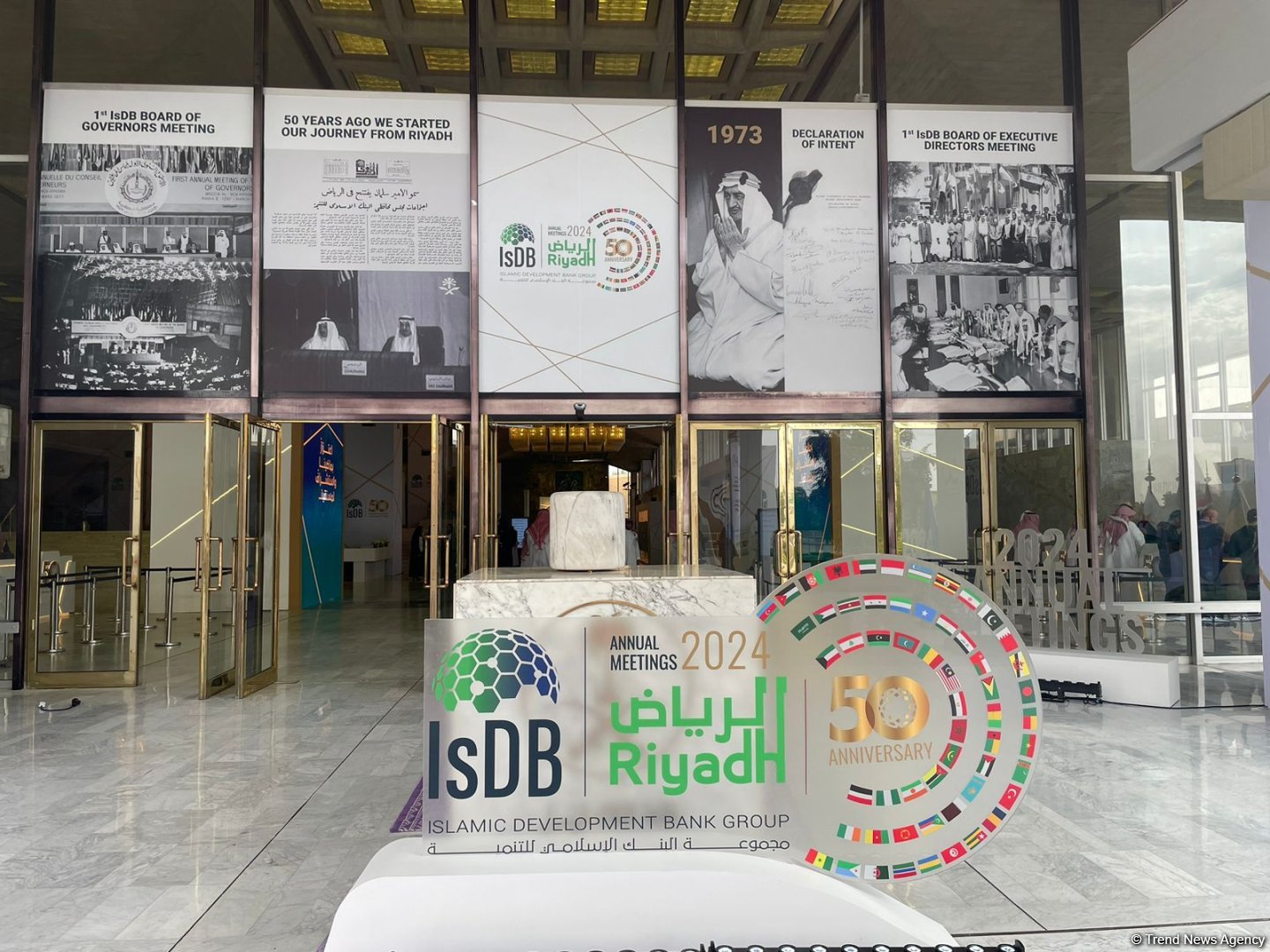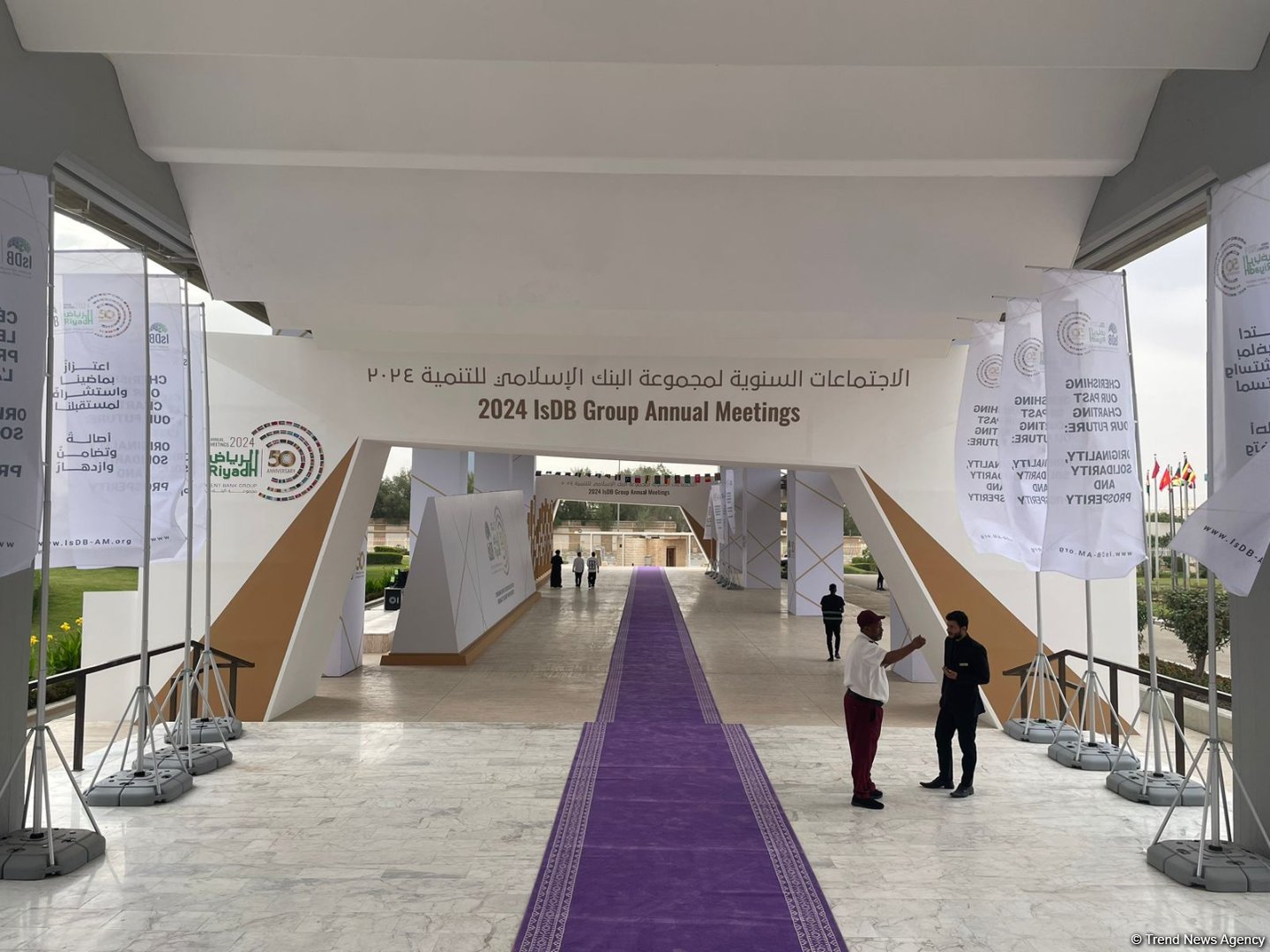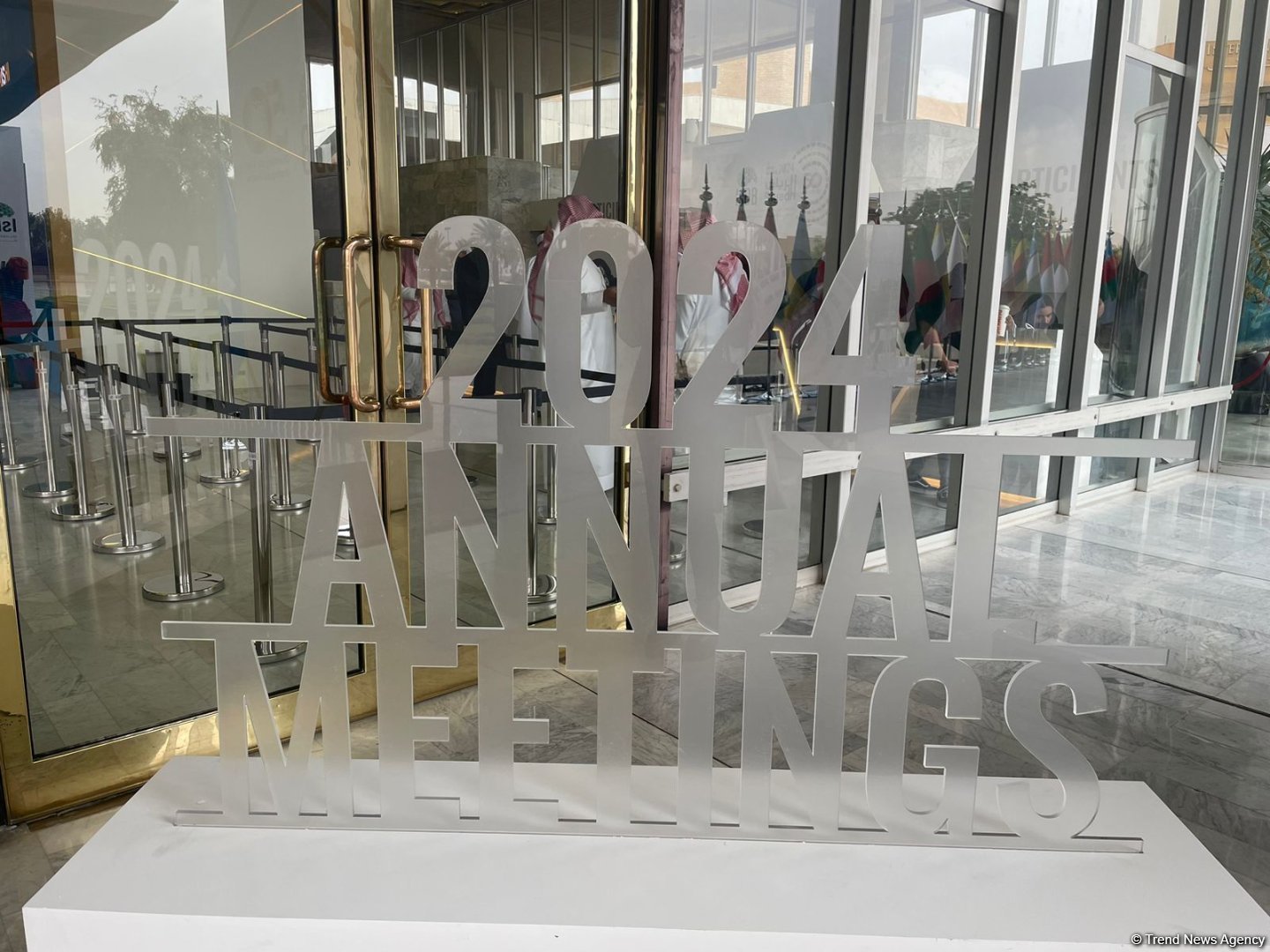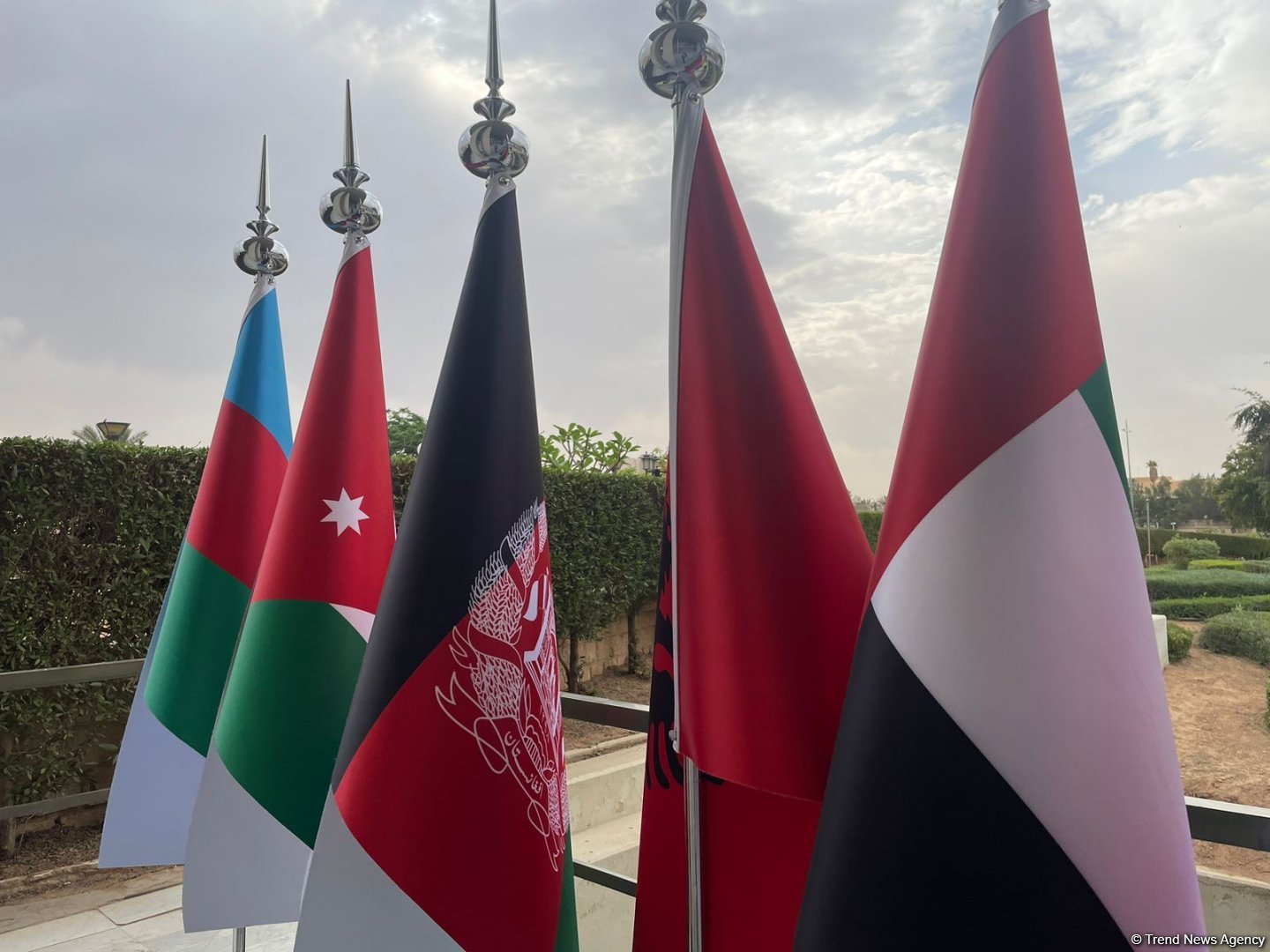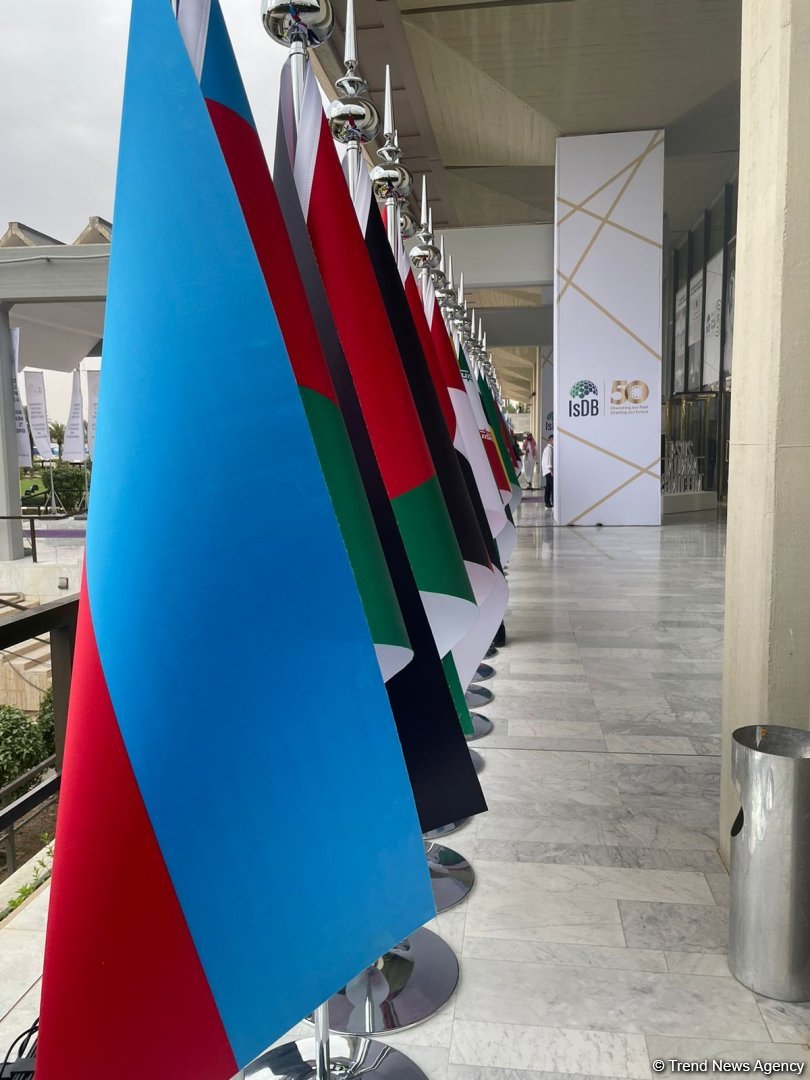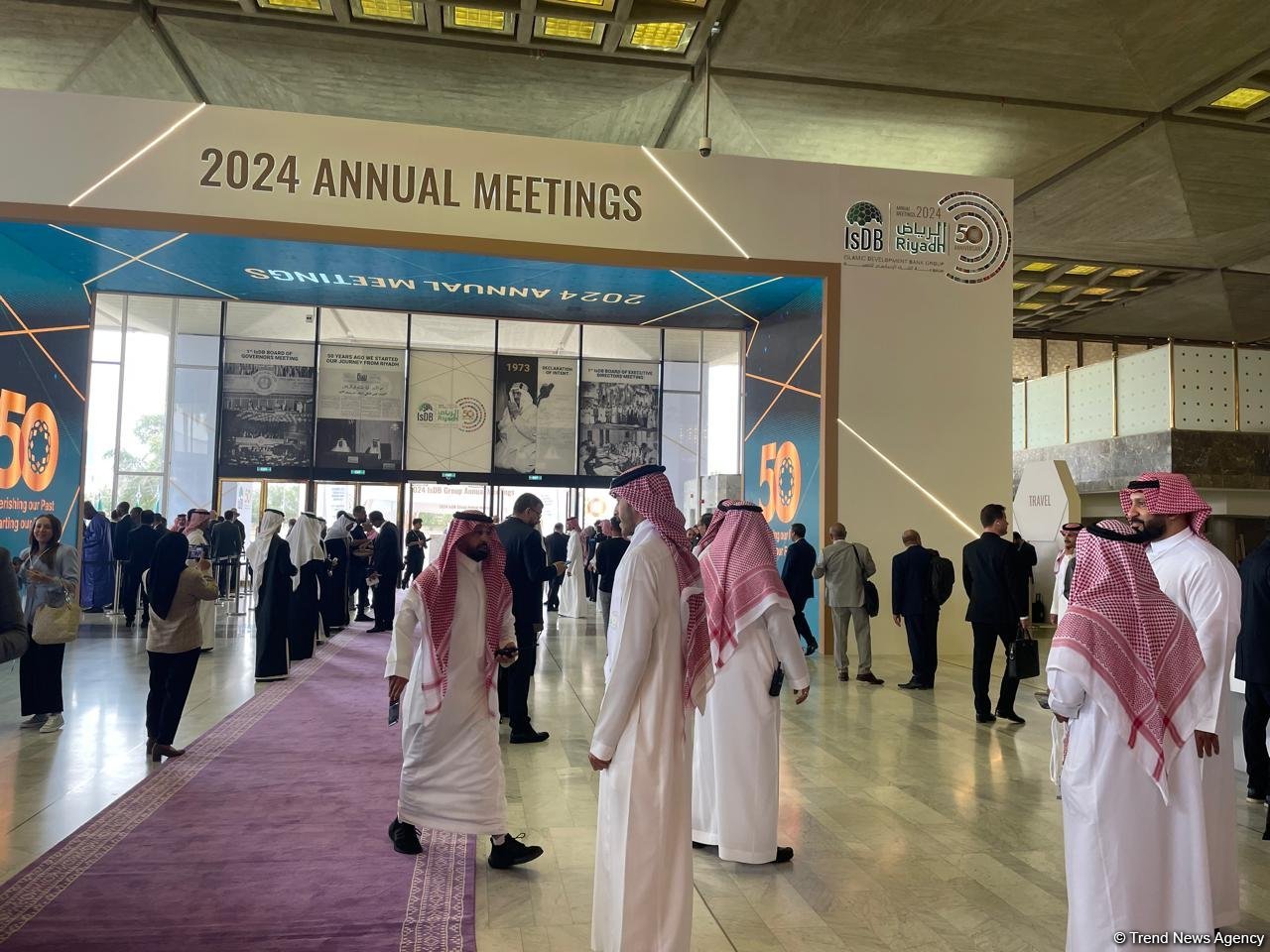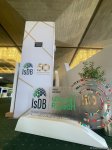RIYADH, Saudi Arabia, April 27. The Islamic Development Bank Group (IsDB) is holding its 2024 Annual Meetings and Golden Jubilee in Riyadh from April 27-30, under the Royal Patronage of the Custodian of Two Holy Mosques, King Salman Bin Abdulaziz Al-Saud, Trend reports from the event venue.
The 2024 Annual Meetings are being held under the theme of “Cherishing our Past, Charting our Future: Originality, Solidarity and Prosperity”, which marks IsDB’s 50 years of fostering socio-economic development in its member countries.
Among other topics, the meetings will also feature roundtable on COP29 with participation of Azerbaijani government representatives.
As the premier South-South multilateral development Bank, the 2024 IsDB Group Annual Meetings and Golden Jubilee are expected to attract international and regional attention. The Annual Meetings will feature a series of side events with top-level panelists from government, international and regional organizations, the private sector, academia, and civil society.
Ministers of Economy, Planning, and Finance from IsDB's 57 member countries will participate in the event, along with representatives of international and regional financial institutions, Islamic banks, private sector companies, national and international development finance institutions, international and regional organizations, NGOs, chambers of commerce & Industry, and business councils.
The meetings will provide an opportunity to explore ways to consolidate economic relations among IsDB member countries and maximize cooperation with participating financing institutions.
During the Annual Meetings, IsDB is also celebrating the Bank’s Golden Jubilee to commemorate five decades of unwavering collaboration, steadfast partnerships, and transformative change. It marks a significant journey of IsDB that began 50 years ago in Riyadh with the inaugural meeting of IsDB Board of Governors, which was graced with the attendance of the Emir of Riyadh at that time HRH Prince Salman Bin Abdulaziz Al-Saud.
A number of forums, seminars, and meetings will take place
during this historic gathering including the Governors Roundtable
Meeting, the 18th IsDB Global Forum on Islamic Finance, IsDB Group
2024 Private Sector Forum, the Role of SMEs in Saudi Vision 2030,
Charting a Course for Augmenting SDGs Financing, Leveraging Islamic
Finance for Developing Sustainable and Resilient Infrastructure,
Arab Coordination Group Forum, Future Vision Symposium, General
Assembly of Federation of Consultants from Islamic Countries
(FCIC).
Rated AAA by the major rating agencies of the world, the Islamic
Development Bank is the pioneering multilateral development bank of
the Global South that has been working for 50 years to improve the
lives of the communities it serves by delivering impact at scale.
Guided by the principles of Islamic finance, the Bank brings
together 57 Member Countries across four continents, touching the
lives of nearly 1 in 5 of the world population. Its mission is to
equip people to drive their own economic and social progress at
scale, putting the infrastructure in place enabling them to fulfil
their potential. Headquartered in Jeddah, Kingdom of Saudi Arabia,
IsDB has regional hubs and centers of excellence in 11 of its
Member Countries. Over the years, the Bank has evolved from a
single entity into a group comprising five entities: Islamic
Development Bank (IsDB), the Islamic Development Bank Institute
(IsDBI) tasked with research and training, the Islamic Corporation
for the Insurance of Investment and Export Credit (ICIEC), the
Islamic Corporation for the Development of the Private Sector
(ICD), and the International Islamic Trade Finance Corporation
(ITFC).
Cooperation with Azerbaijan
Since Azerbaijan’s membership in 1992, IsDB has been approving economic and social infrastructure projects, mostly in energy, water and sanitation, and urban services, and improving access to finance. More specifically, the Bank’s financing assisted the country to reach the following socio-economic results:
In the Energy sector, an energy generation capacity of 1,060 MW and a renewable energy generation capacity of 230 MW were installed. In addition, 287 kilometers of transmission/distribution lines were constructed, and 400 substations were installed or upgraded improving national energy security and boosting exports.
In Water and Sanitation sector, more than 100 small-scale potable water distribution networks in rural communities were constructed or rehabilitated providing clean and safe drinking water and basic sanitation to 75,000 people in 4 regions of Azerbaijan.
In the Agriculture and Rural Development sector, about 85,000 hectares of agricultural land were irrigated, and modern agricultural equipment for farmers was provided.
In the Finance sector, a US$10 million of financing was provided to private sector enterprises including small and medium enterprises affected by the COVID-19 pandemic.
In late January of 2024 the IsDB and Azerbaijan's Ministry of Economy signed a Memorandum of Understanding (MoU), establishing a collaborative framework for the Country Engagement Framework (CEF) for Azerbaijan during 2024-2026.
The CEF will target projects and programs with high-impact intervention in areas that align with Azerbaijan 2030: National Priorities of Socio-Economic Development and the operational strengths of the Bank in line with the strategic priorities set under the Bank’s Strategic Realignment 2023-2025. It also aims to boost cooperation between the IsDB Group and Azerbaijan, expand the potential areas of collaboration, and strengthen the Bank’s support in enhancing socio-economic development in the country.
TheIsDB CEF for Azerbaijan will be based on three main pillars namely, i) Green, resilient, and sustainable infrastructure development, including support for Karabakh reconstruction, renewable energy, regional connectivity, and sustainable production of hydrocarbon resources; ii) Supporting productivity-based growth in a competitive and diversified economy, encompassing private sector development, exports, and innovation in agriculture, as well as the Halal ecosystem, and iii) Cross-cutting areas such as digital transformation, Islamic finance, regional and south-south cooperation, and capacity development.
Follow the author on X: @Lyaman_Zeyn

